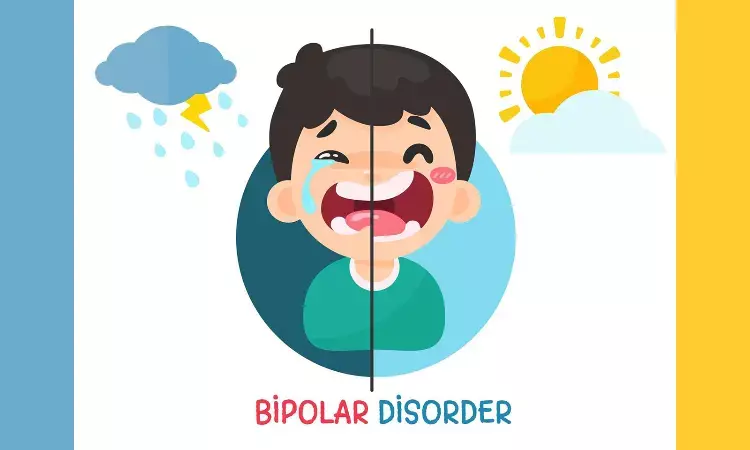- Home
- Medical news & Guidelines
- Anesthesiology
- Cardiology and CTVS
- Critical Care
- Dentistry
- Dermatology
- Diabetes and Endocrinology
- ENT
- Gastroenterology
- Medicine
- Nephrology
- Neurology
- Obstretics-Gynaecology
- Oncology
- Ophthalmology
- Orthopaedics
- Pediatrics-Neonatology
- Psychiatry
- Pulmonology
- Radiology
- Surgery
- Urology
- Laboratory Medicine
- Diet
- Nursing
- Paramedical
- Physiotherapy
- Health news
- Fact Check
- Bone Health Fact Check
- Brain Health Fact Check
- Cancer Related Fact Check
- Child Care Fact Check
- Dental and oral health fact check
- Diabetes and metabolic health fact check
- Diet and Nutrition Fact Check
- Eye and ENT Care Fact Check
- Fitness fact check
- Gut health fact check
- Heart health fact check
- Kidney health fact check
- Medical education fact check
- Men's health fact check
- Respiratory fact check
- Skin and hair care fact check
- Vaccine and Immunization fact check
- Women's health fact check
- AYUSH
- State News
- Andaman and Nicobar Islands
- Andhra Pradesh
- Arunachal Pradesh
- Assam
- Bihar
- Chandigarh
- Chattisgarh
- Dadra and Nagar Haveli
- Daman and Diu
- Delhi
- Goa
- Gujarat
- Haryana
- Himachal Pradesh
- Jammu & Kashmir
- Jharkhand
- Karnataka
- Kerala
- Ladakh
- Lakshadweep
- Madhya Pradesh
- Maharashtra
- Manipur
- Meghalaya
- Mizoram
- Nagaland
- Odisha
- Puducherry
- Punjab
- Rajasthan
- Sikkim
- Tamil Nadu
- Telangana
- Tripura
- Uttar Pradesh
- Uttrakhand
- West Bengal
- Medical Education
- Industry
Lumateperone safe and effective for major depressive episodes in bipolar patients: Study

USA: Lumateperone at 42 mg/day considerably reduced depression symptoms and was usually well tolerated in patients with major depressive episodes associated with both bipolar I and bipolar II disorders, according to research done by Joseph R. Calabrese and colleagues. The findings were published online in The American Journal of Psychiatry.
The authors evaluated the effectiveness and safety of 42 mg/day of lumateperone in individuals with bipolar I or bipolar II illness suffering a major depressive episode in phase 3 randomized double-blind placebo-controlled trial.
Patients between the ages of 18 and 75 having a clinical diagnosis of bipolar I or bipolar II illness with a severe depressive episode were eligible for the research. Patients were randomly assigned to receive 42 mg/day lumateperone (N=188) or placebo (N=189) orally once daily in the evening for 6 weeks. The primary and major secondary effectiveness objectives were changes in the Montgomery-sberg Depression Rating Scale (MADRS) score and total score on the Clinical Global Impressions Scale–Bipolar Version severity scale (CGI-BP-S) from baseline to day 43, respectively.
The key findings of this study were, when compared to placebo and the CGI-BP-S total score at day 43, lumateperone therapy was linked with a substantially higher improvement from baseline in MADRS score. Lumateperone outperformed placebo in terms of MADRS in both individuals with bipolar I and bipolar II illnesses. Somnolence and nausea were the only treatment-emergent side events that occurred at a clinically significant higher rate with lumateperone compared with placebo. The rate of extrapyramidal symptom-related treatment-emergent adverse events was modest and comparable to placebo. Weight, vital signs, metabolic and endocrine tests all showed minor alterations.
In conclusion, the results of this study are clearly an indication of the effectiveness of Lumateperone on depressive syndromes in patients with bipolar disorder and hence may be suggested for the treatment in such cases.
Reference:
Calabrese, J. R., Durgam, S., Satlin, A., Vanover, K. E., Davis, R. E., Chen, R., Kozauer, S. G., Mates, S., & Sachs, G. S. (2021). Efficacy and Safety of Lumateperone for Major Depressive Episodes Associated With Bipolar I or Bipolar II Disorder: A Phase 3 Randomized Placebo-Controlled Trial. American Journal of Psychiatry, appi.ajp.2021.2. https://doi.org/10.1176/appi.ajp.2021.20091339
Medical Dialogues consists of a team of passionate medical/scientific writers, led by doctors and healthcare researchers. Our team efforts to bring you updated and timely news about the important happenings of the medical and healthcare sector. Our editorial team can be reached at editorial@medicaldialogues.in.
Dr Kamal Kant Kohli-MBBS, DTCD- a chest specialist with more than 30 years of practice and a flair for writing clinical articles, Dr Kamal Kant Kohli joined Medical Dialogues as a Chief Editor of Medical News. Besides writing articles, as an editor, he proofreads and verifies all the medical content published on Medical Dialogues including those coming from journals, studies,medical conferences,guidelines etc. Email: drkohli@medicaldialogues.in. Contact no. 011-43720751


